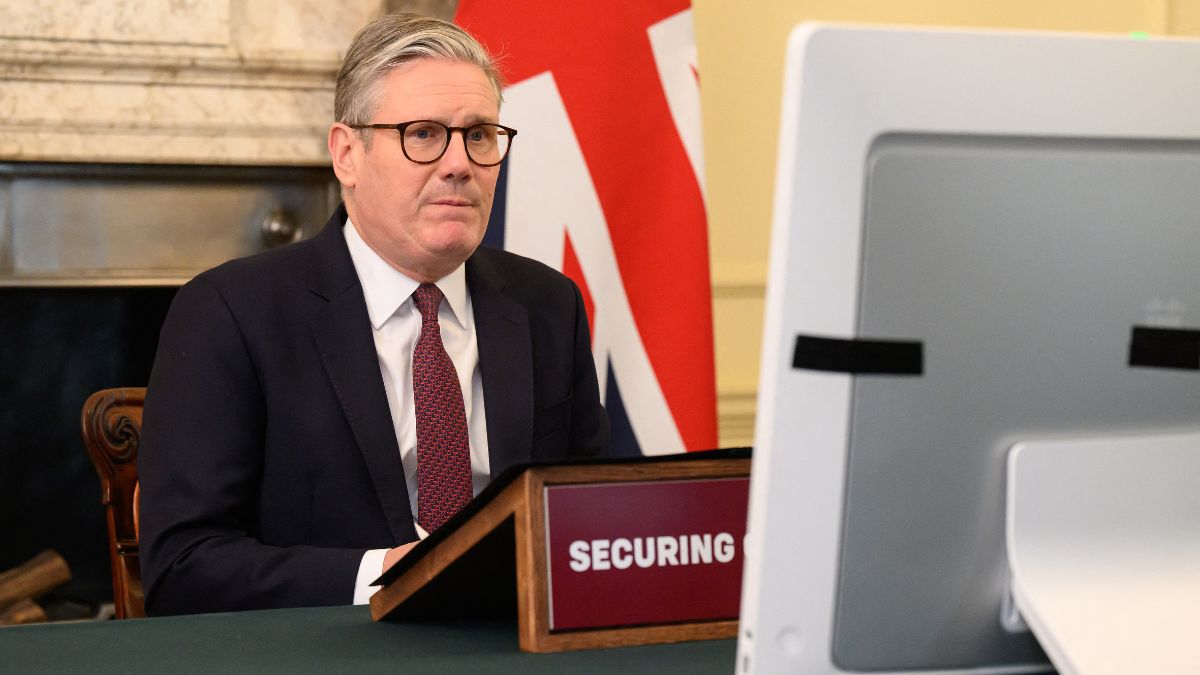UK Prime Minister Keir Starmer steered clear of a devastating parliamentary defeat on critical welfare changes Tuesday by making last-minute compromises in the face of the most severe internal revolt of his year-long premiership.
Starmer had already performed an authority-sapping retreat last week on contentious plans to cut disability and illness benefits, following a huge revolt from Labour MPs who said the measures went too far.
The ruling party has a large majority in the lower House of Commons, and more than 80 of its MPs must rebel to reject a bill.
Despite agreeing to tone down the revisions on Friday, a persistent outcry from his MPs led him to make more big concessions only hours before a crucial vote on the measure late Tuesday.
They included delaying cuts planned for 2026 until after a review led by social security and disability minister Stephen Timms.
That ensured the vote easily went the government’s way, with 335 MPs backing the legislation compared to 260 voting against – a majority of 75.
But the series of big concessions left the bill – which had aimed to save billions of pounds from the country’s ballooning welfare bill – in tatters and critics branding the revised legislation “farcical”.
“This is an utter capitulation,” Kemi Badenoch, the leader of the main Conservative opposition, said on social media.
“Labour’s welfare bill is now a TOTAL waste of time. It effectively saves £0, helps no one into work, and does NOT control spending. It’s pointless.”
Impact Shorts
More Shorts‘One year of u-turns’
Work and Pensions Minister Liz Kendall had unveiled the new-look bill to parliament on Monday, just as newly-released government data estimated an extra 150,000 people would be pushed into poverty by the watered-down reforms.
Starmer – who later this week marks one year in Downing Street – had hoped the legislation would cut £5 billion ($6.9 billion) from the welfare budget.
That estimate fell to £2.5 billion after last week’s initial concessions and it was unclear what, if any, savings would now be made.
It means finance minister Rachel Reeves, who has struggled to generate growth from a sluggish UK economy, will need to find more money elsewhere.
The parliamentary wrangling has also clouded the first anniversary of Labour’s return to power after 14 years in opposition, while renewing questions about Starmer’s political acumen and the purpose of his centre-left government.
Starmer has had meagre success in the government’s central mission of boosting economic growth, and in recent months made a series of damaging U-turns.
“One year of Starmer, one year of u-turns,” Nigel Farage, leader of the surging far-right Reform UK party, posted Tuesday.
On June 9, the government declared it had reversed a policy to scrap a winter heating benefit for millions of pensioners, following widespread criticism and another rebellion from its own MPs.
A week later, Starmer – a former chief state prosecutor in England and Wales – announced a national inquiry focused on a UK child sex exploitation scandal, after previously resisting calls.
The prime minister has a massive majority of 165 MPs, meaning he should be able to force whatever legislation he wants through parliament.
But many of his own MPs complain of a disconnect between Starmer’s leadership, which is focused on combatting the rise of Reform UK and Labour’s traditional centre-left principles.
A YouGov poll of more than 10,000 Britons released last week found that while Labour is losing voters to Reform, it is also forfeiting supporters to the Liberal Democrats and the Greens on the left.


)

)
)
)
)
)
)
)
)



